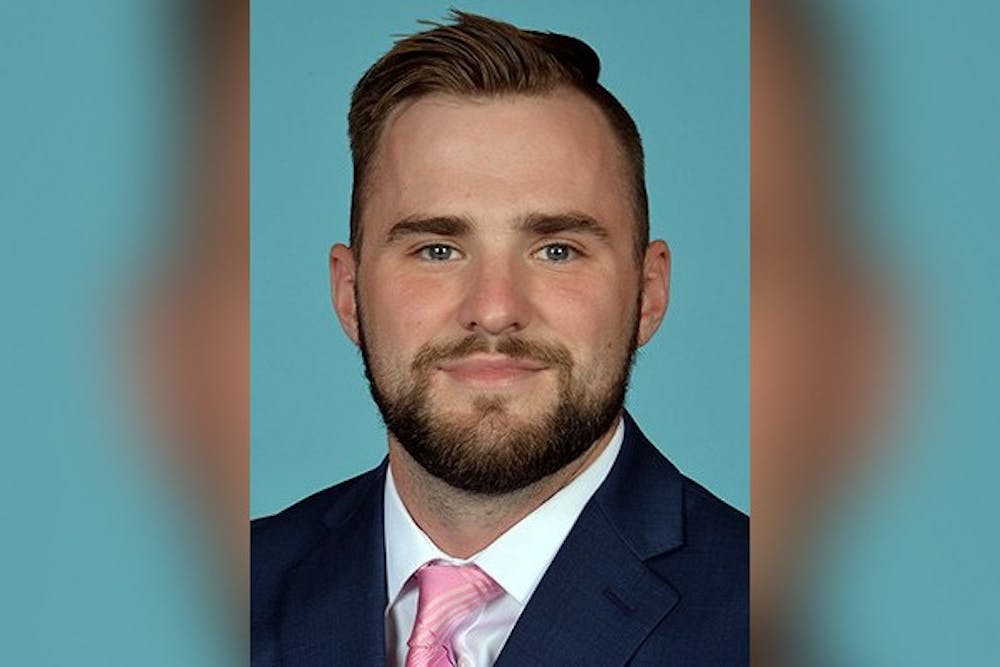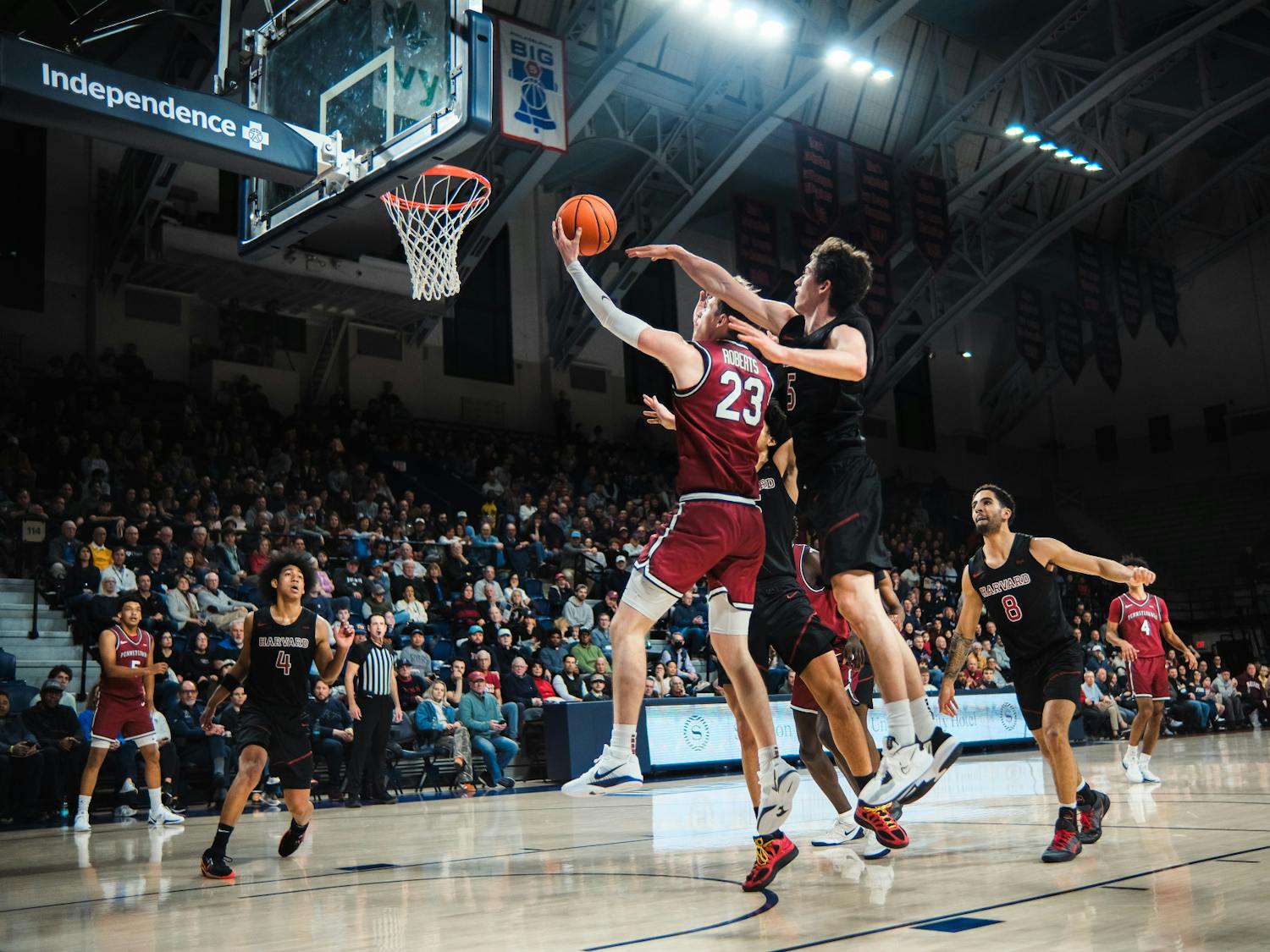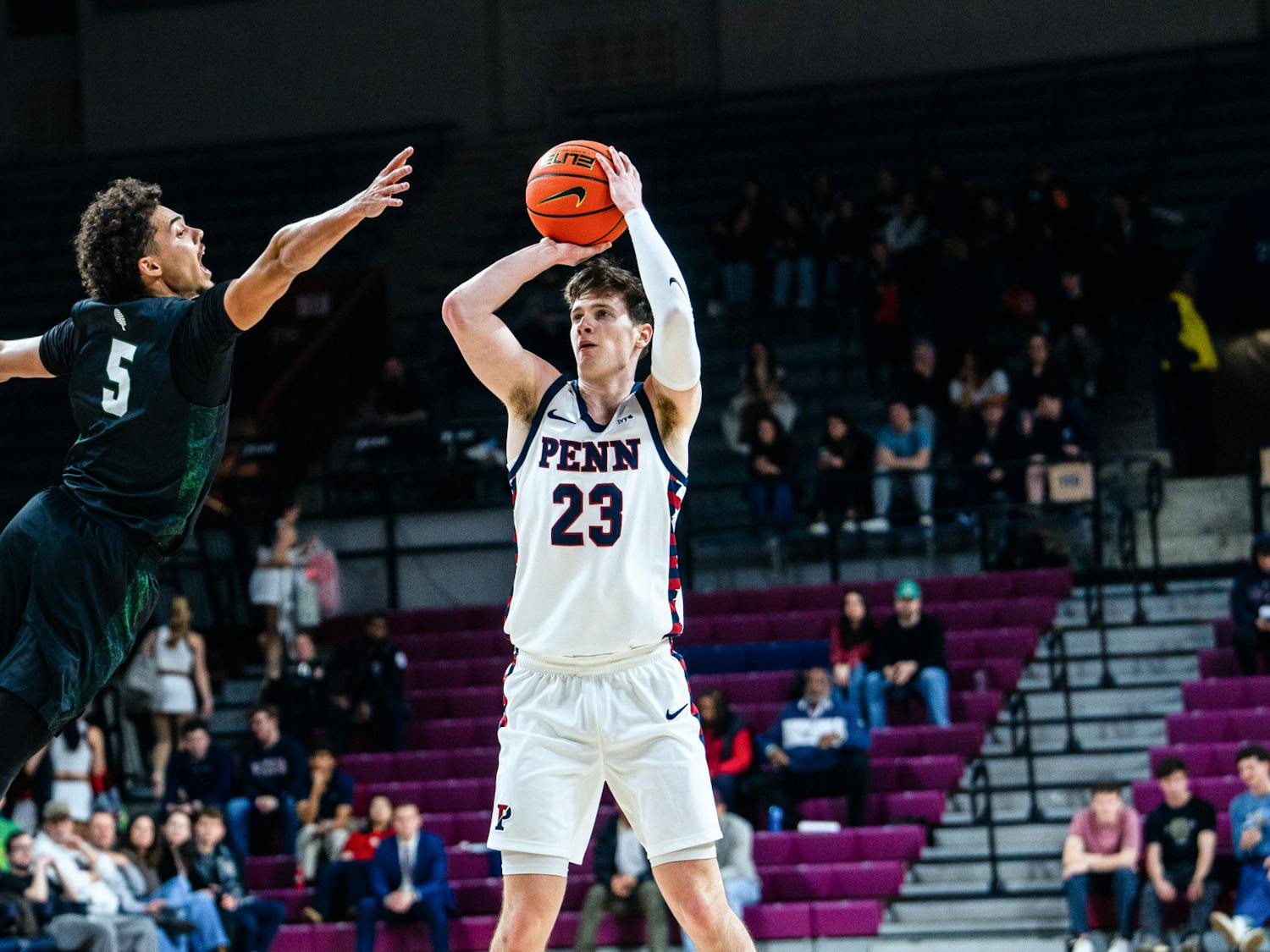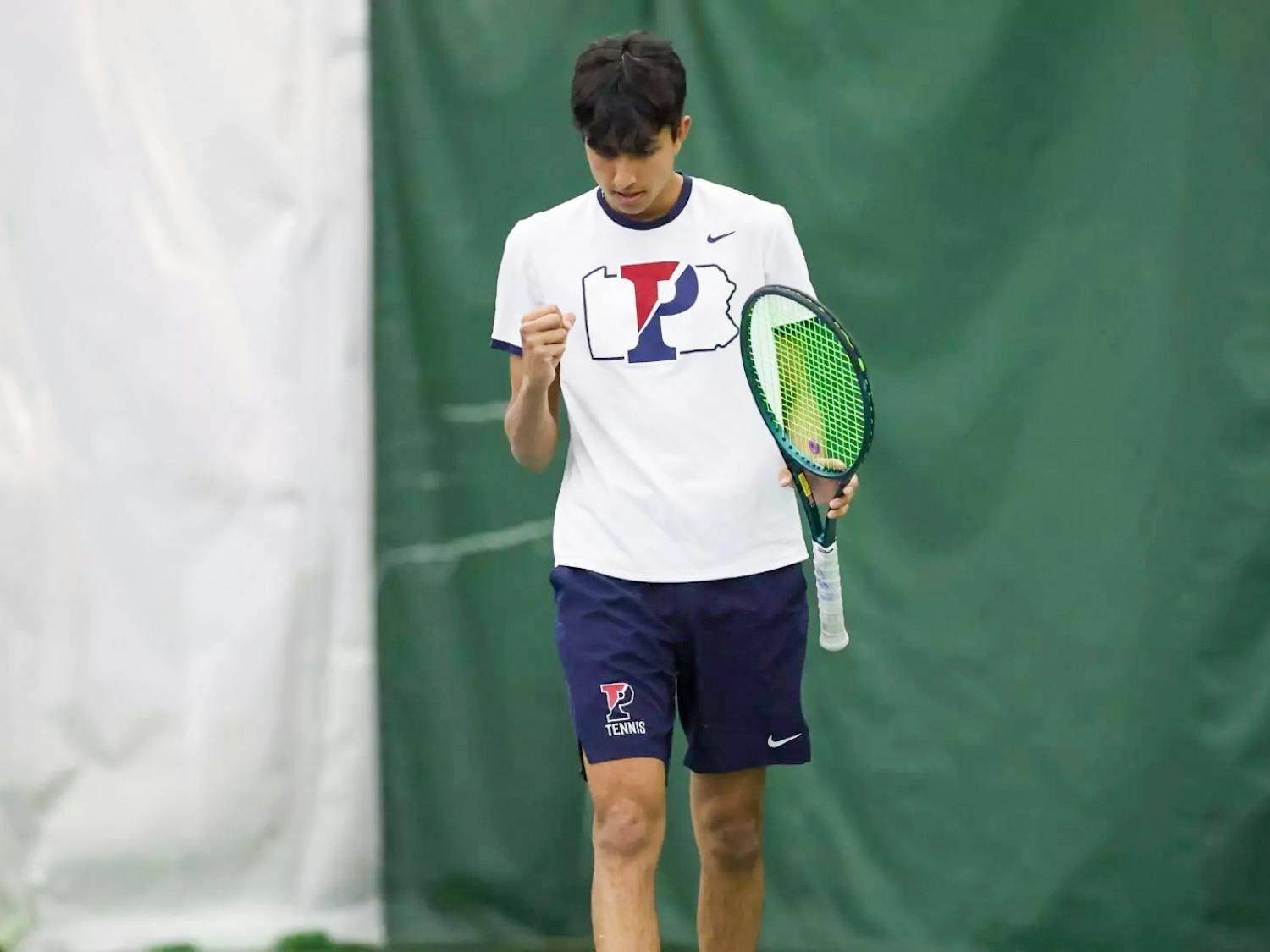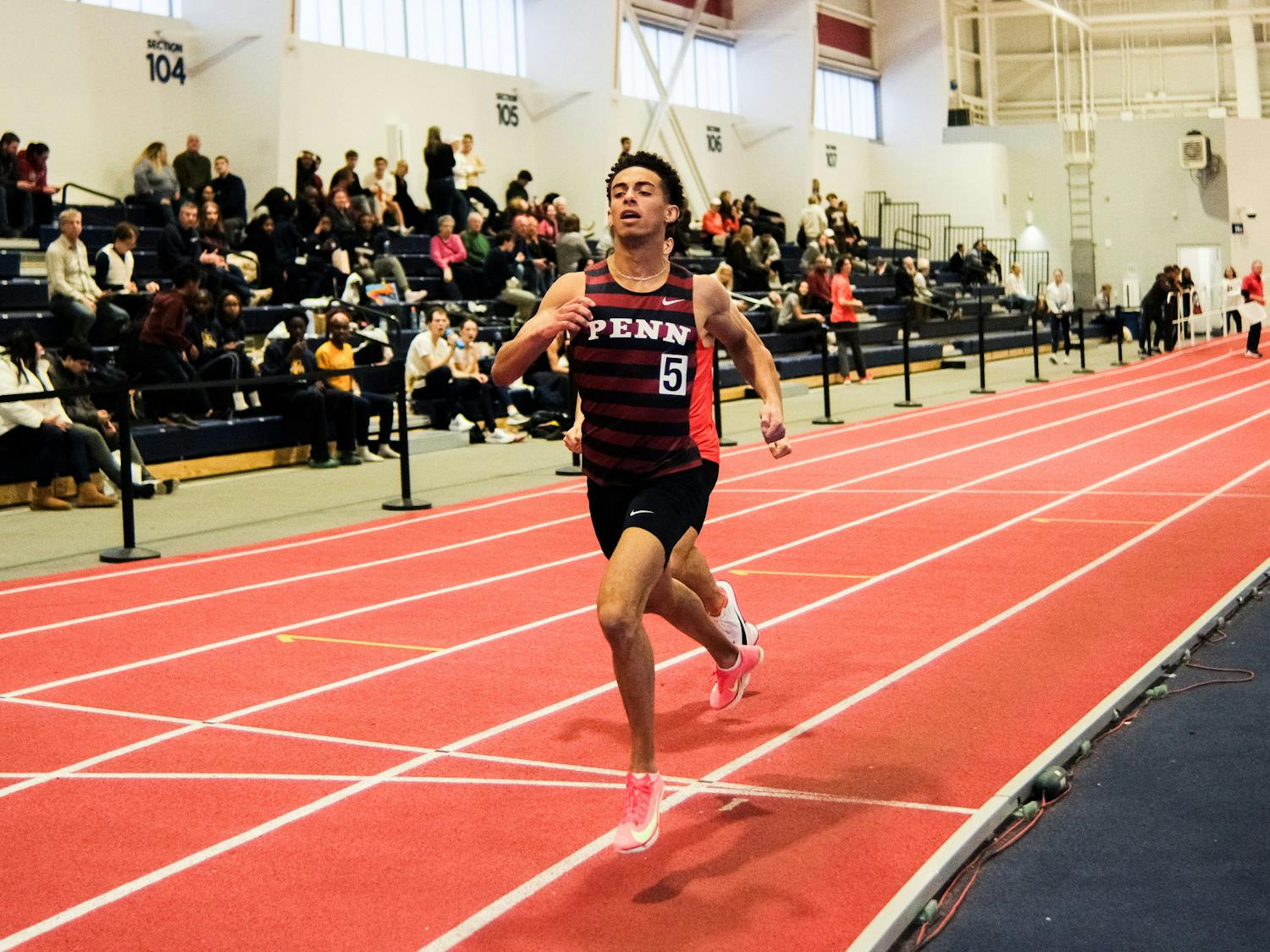“Have you ever been in prison for longer than three days?”
“Did you live in England for more than 12 months in the 1990s?”
When Mike Burkeitt, a Penn assistant athletic trainer, became a candidate to donate bone marrow to Be The Match in 2012, he could have never anticipated being asked these bizarre questions in preparation for a transplant in 2020.
Born and raised in Philadelphia, Burkeitt stayed close to home and graduated from Temple in 2016. Then, he moved onto Old Dominion University, where he earned a master’s degree in athletic training and subsequently became an athletics assistant there for a couple years.
Burkeitt has now been serving as an athletic trainer at Penn since 2018, where he assists the baseball, men’s soccer, and lightweight rowing programs. While working from home in July due to the COVID-19 pandemic, Burkeitt received an unexpected call, stating that he was one of eight donors being strongly considered for a bone marrow transplant for a patient dying from leukemia.
Only around one in 430 potential donors is matched with a patient for bone marrow transplants. Out of the eight potential donors in this particular case, Burkeitt emerged as the best match given he was youngest and shared a similar physique to the patient.
What began as an innocuous cheek swab to test the protein type of his human leukocyte antigens suddenly transformed into a pressing reality for Burkeitt.
“Knowing that for someone else’s family, this is their Hail Mary more or less, this is their last chance to save somebody,” Burkeitt said. “The more I thought about it, I thought how could I say no? This was an incredible chance. With everything going on in the world, if this is the one positive I can give, then I need to do that.”
After overcoming his initial nerves, Burkeitt began the process of preparing for the procedure in October. He partook in an extensive physical, a vein assessment, and a three and a half hour questionnaire, in which he learned more about himself and his body than ever before.
Moreover, he was prescribed a large dose of filgrastim, which is normally given to cancer patients in order to bolster their white blood cell count. Burkeitt’s white blood cell counts neared 40,000 at the time of the transplant (the normal range for an adult is around 5,000-10,000), but this hyper immune system came at the cost of a compromised gastrointestinal system.
The preparation also required a five-day process of injections, which were carried out entirely by nurse Lexi O’Hara, who is also Burkeitt’s girlfriend.
Burkeitt and his doctors opted to perform a peripheral blood stem cell transplant, as opposed to a traditional bone marrow transplant that extracts marrow from around one’s hips. Though the PBSC is non-surgical, on the day of the transplant, complications arose for Burkeitt.
In one of Burkeitt’s arms, the veins were not strong enough, meaning a catheter that extended to his heart needed to be inserted into his jugular vein.
“The only thing is it’s absolutely terrifying because this thing is chilling next to your heart, there’s a risk of infection, or you could have a bad reaction.”
Yet Burkeitt always looks towards the positive side of situations and pointed out that this extra step allowed the procedure to be completed more quickly. He was conscious for the entire four to five hours of the procedure.
“It’s incredible to see the stem cells in the bag,” Burkeitt said. “Realistically, it might only be a couple ounces, but it’s incredible to look at that and know that’s enough to save somebody.”
Following the transplant, Burkeitt underwent a smooth recovery of a few weeks, where he was instructed to avoid activities that would increase his heart rate, giving him plenty of time to reflect on his experience.
“It really gave me a new outlook on life and let me appreciate things a lot more,” Burkeitt said. “Because no matter what we’re going through, it pales in comparison to what someone else is going through.”
Burkeitt’s job involves him helping others through his body, and to him this rewarding experience affirmed the power that individuals possess to help others. Burkeitt believes in the gift of life, and he has become even more grateful for time and all the little things that accompany each day.
“It’s a big ask to get your marrow taken from you and given to someone else,” Penn men's soccer coach Brian Gill said. “But it’s not something that I think any of our staff members or our players are overly surprised about.”
Gill described Burkeitt as a friendly guy who always understood the perfect balance between professionalism and building intimate relationships with the players. As an athletic trainer who is responsible for monitoring all aspects of a player, his relationships with them are unique and surpasses the common coach-player bonds.
Despite his enormous individual sacrifice, Burkeitt remained as humble and gracious as ever, praising the doctors, nurses, and his girlfriend for doing all the real work.
“If more people in the world acted to help others just a little bit more than always thinking about themselves, then the world would be in a much better place,” Burkeitt said. “I want to make sure everyone knows that you might not always do things that benefit you but that eventually everything works out and it will help you in the long run. You’re going to look back and be proud.”
Burkeitt’s remarkable story is the latest example of selfless acts from Penn Athletics. Penn football has been an active participant in Be The Match since their collaboration began 13 years ago. In that time period, there have been five matches, and recently players Sam Philippi and Anthony Lotti were responsible for saving lives due to bone marrow transplants.
“It’s a great story, and I hope it inspires people and brings positivity,” Burkeitt said. “But, I would like there to be more stories like it. If everyone could, sign up for the registry. If we get 500 people to sign up, maybe we could save another life.”
Signing up to become a donor for Be The Match could not be easier: the organization will ship the necessary materials, and all that is required is swabbing your mouth.
As the world continues to battle the COVID-19 pandemic, Burkeitt’s story is as pertinent as ever. His example serves as a reminder of the importance of personal sacrifice, as well as the rewarding feeling of giving.
“On my last days on Earth, I think if someone asked me my greatest achievement, I would say this,” Burkeitt said. “Not anything for me, but just the fact that I tried to help someone else. A complete stranger means just as much as my brother does.”


